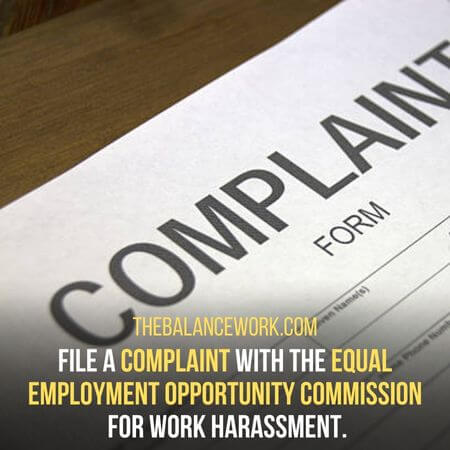How to work with an aggressive coworker? Among the different types of a difficult coworkers, the aggressive one is the most challenging to deal with.
After all, it’s not easy to remain calm and collected when someone is snapping at you or causing drama.
15 Ways To Work With An Aggressive Coworker
If you’re struggling to keep your cool around an aggressive coworker, start by following the tips below.
You must be the bigger person and maintain a pose, so you don’t stoop to their level. Let’s find out how you can do that.
1. Know The Root Cause:
The first step is to understand why your coworker is behaving aggressively.
There could be several reasons for this. Such as pent-up frustration, they feeling threatened, or even having a bad day.

Or, it could be something personal that has nothing to do with you. If you can find out the reason behind their aggression, it’ll be easier for you to deal with them.
For instance, if they’re stressed about a project, see if you can help them. Or, if they’re feeling threatened, try to build a better relationship with them.
2. Don’t Take It Personally:
This is easier said than done. But you mustn’t take your coworker’s aggression personally.
Remember, it’s not about you. And even if it is, you can do nothing about it, so there’s no use dwelling on it.
Instead, focus on how you can deal with the situation in a positive way. You can do this by keeping a positive attitude and not getting defensive.
Also, try to see things from their perspective. This will help you empathize with them and understand their origin.
3. Avoid Arguments:
Arguing with an aggressive coworker is only going to make the situation worse. So, it’s best to avoid it if you can.
If they start an argument with you, remain calm and don’t rise to the bait. Instead, defuse the situation by changing the subject or walking away.
Or, you could try to reason with them and explain your point of view calmly and rationally.
If they’re still being aggressive, it’s probably best to leave it and move on.
If all else fails and the argument escalates, you can always speak to your boss or HR.
4. Be Assertive:
You must stand up for yourself when dealing with an aggressive coworker. Otherwise, they’ll think they can walk all over you.
That doesn’t mean you have to be aggressive yourself, though. Just be assertive.
For instance, politely ask them to stop if they’re constantly interrupting you. Or, if they’re putting you down, tell them firmly that you don’t appreciate it.
You can say, “I’m sorry, but I don’t deserve to be treated like this. I’d appreciate it if you would stop.”
Or “Can we please discuss this like adults? I don’t want to argue with you.”
5. Set Boundaries:
It’s also vital that you set boundaries with an aggressive coworker. This will help you protect yourself from their behavior.

For instance, you could tell them you will not disrespectfully tolerate being treated.
Or, you could say that you don’t want to discuss specific topics with them.
You could also set physical boundaries by telling them not to come too close or touch you.
If they continue to cross your boundaries, you can speak to your boss or HR.
6. Communicate Assertively:
One of the best ways to deal with an aggressive coworker is to communicate assertively.
This means being clear and direct in your communication. For instance, if your coworker constantly interrupts you, let them know it’s rude.
Do not resort to passivity or aggression. Instead, be assertive and confident when dealing with them.
7. Set Consequences:
If the situation is still not resolved, you may need to set consequences.
For instance, tell your coworker that you’ll go to HR if they don’t stop their aggressive behavior.
Or, you could speak to your boss. You will let them know you will not tolerate being treated this way.
Whatever you do, follow through with your consequences if they don’t change.
8. Remain Calm And Collected:
They are being aggressive, but do you have to be too?
It can be challenging to remain calm when someone is constantly snapping at you. But you must try.
If you react aggressively, it’ll only make the situation worse. They may think that they can get away with treating you poorly.
So, take a deep breath and count to 10 before you respond. This will help you stay calm and collected in the situation.
9. Find An Outlet For Your Frustration:
It’s also essential that you find an outlet for your frustration. Otherwise, it’ll build-up, and you’ll explode.
So, make sure you have a support system that you can rely on. This could be your friends, family, or a therapist.
It’s also essential to find healthy ways to release your frustration. For instance, you could go for a run or punch a pillow.
Or, you could vent to a friend about the situation. Just make sure you’re not venting to your coworker.
10. Avoidance:
Sometimes, the best solution is to avoid an aggressive coworker.
This may not be possible if you work closely with them. But if you can, it’s often the best solution.
For instance, you could try to take a different route to avoid them in the office.

Or, you could eat lunch at a different time to avoid them in the cafeteria.
You could also try to avoid them outside of work. For instance, you could decline their invitations to social events.
11. Transfer:
If avoidance is not an option, you may need to transfer to another department.
This will allow you to distance yourself from the aggressive coworker. You can speak to your boss or HR about this option.
In some cases, the best solution is to quit your job. Of course, this is not always possible.
But it’s worth considering if you’re at your wit’s end. And if you do decide to quit, make sure you have another job lined up first.
12. Documentation:
It’s also essential to document aggressive behavior. This will be handy if you speak to HR or your boss about the situation.
So, make sure you keep a record of the incidents’ dates, times, and locations.
It would help if you also documented what they said and did during the incident. This will help you paint a clear picture of what’s been going on.
You can collect CCTV footage, take photos, or save emails and text messages as evidence.
13. Seek Help From HR Or Your Boss:
If all else fails, you can always seek help from HR or your boss.
They can talk to your coworker about their behavior and try to resolve the situation.
Or they could take disciplinary action if necessary. However, it’s important to remember that this should be a last resort.
You should only go to HR or your boss if you’ve tried everything else and the situation is still unresolved.
14. Get Legal Help:
In some cases, you may need to get legal help. This is usually only necessary if the situation has become unbearable.
If they harassed you, you can file a complaint with the Equal Employment Opportunity Commission.
And if they assaulted you, you can file a police report. You may also want to speak to a lawyer to see if you have legal options.

These are some tips on how to deal with an aggressive coworker. If you’re dealing with this situation, make sure you take action. Don’t suffer in silence.
15. Do Not Stoop To Their Level:
Whatever way you choose to deal with an aggressive coworker, you mustn’t stoop to their level.
This means avoiding any physical or verbal aggression.
It’s also essential to avoid getting into a shouting match with them. If they’re trying to bait you, don’t take the bait.
Remember, the goal is to diffuse the situation, not make it worse.
When To Empathize With Aggressive Coworker:
It’s also important to try to empathize with your aggressive coworker. This doesn’t mean that you have to agree with their behavior.
But it does mean trying to understand where they’re coming from. Here are some possible reasons why they may be acting out:
1. Under Stress:
They’re going through a difficult time in their personal life and taking it out on you.
Although external factors may blame, this doesn’t excuse their behavior. They still need to find a better way to deal with their stress.
2. Jealousy:
They may be jealous of your position at the company or think you’re trying to take their job.
Or, they may be jealous of your personal life and think you have it easier than them.
Again, this doesn’t excuse their behavior. But it does help to understand their motivations.
3. Insecurity:
They may feel insecure in their job and think that they have to put up a tough front to keep their job.

Or, they may feel like they’re not good enough. Thus, they’re lashing out as a way to compensate.
Insecurity is often at the root of aggressive behavior.
4. Low Self-Esteem:
They may have low self-esteem and think that they’re not worth your time or attention.
As a result, they act out to get your attention. Such as by being disruptive or starting arguments.
And especially these arguments are on those topics which are very common. Such as office affairs or salary hikes.
5. Anger Issues:
They may have unresolved anger issues and take it out on those around them.
This is often the case with people who grew up in abusive households. They may not even be aware that they have a problem.
But it’s important to realize that this is often the case. You can refer them to a therapist or counselor. They can help them deal with their anger more constructively.
These are some possible reasons why your coworker may be acting out.
Final Word:
If you have a coworker who’s being aggressive, you can work with them to try to resolve the issue. A worse-case scenario is to have a passive-aggressive boss.
Start by understanding their motivations and then work on diffusing the situation.
And if all else fails, you can always go to HR or your boss to try to resolve the issue.
Last Updated on 2 years ago by Eesha Khan
- Why Does My Boss Wink At Me? 6 Potential Reasons - October 5, 2023
- Is It Legal For Your Employer To Call Your Doctor? No, But… - October 4, 2023
- 12 Ways To Deal With A Low IQ Person - September 22, 2023